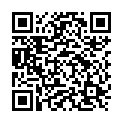|
|
|
| Module code: MAM-9.V.3 |
|
2U (2 hours per week) |
|
2 |
| Semester: 9 |
| Mandatory course: yes |
Language of instruction:
German |
Assessment:
Lab reports, presentations, protocols and worksheets
[updated 06.07.2021]
|
MAM-9.V.3 Engineering and Management, Master, ASPO 01.10.2004
, semester 9, mandatory course
|
30 class hours (= 22.5 clock hours) over a 15-week period.
The total student study time is 60 hours (equivalent to 2 ECTS credits).
There are therefore 37.5 hours available for class preparation and follow-up work and exam preparation.
|
Recommended prerequisites (modules):
None.
|
Recommended knowledge:
Bachelorís degree
[updated 14.08.2012]
|
Recommended as prerequisite for:
|
Module coordinator:
Prof. Dr.-Ing. Christian Gierend |
Lecturer: Prof. Dr.-Ing. Christian Gierend
[updated 06.09.2004]
|
Learning outcomes:
Analytics:
After successfully completing this module, students will have acquired an overview of the prerequisites and the most important methods of trace and environmental analysis.
Measurement technology:
Students will be familiar with measurement methods, measurement accuracy, transducers, the acquisition, display and storage of measured values for the parameters that typically determine material transformations in process engineering.
[updated 06.07.2021]
|
Module content:
Analytics:
Fundamentals of analytical metrology, the 6 Ws, environmental metrology as an interdisciplinary task, parameters and reference values, quality criteria, precision and accuracy, analytical procedures, sampling, processing, measurement, direct methods, evaluation and assessment, important analytical techniques: classical chemical measurements, photometry, AAS and AES, potentiometry, polarography, chromatography.
Measurement technology:
Introduction and basic terms, overpressure and underpressure measurement, flow measurement, concentration measurement, measuring instruments (IDM, false color camera, photometer, GC, GPC, HPLC, AAS, PH- value electrode, O2- electrode, pyranometer)
[updated 06.07.2021]
|
Teaching methods/Media:
Special documents for the experiments,
special literature excerpts
[updated 06.07.2021]
|
Recommended or required reading:
Recknagel- Sprenger- Schramek, Taschenbuch für Heizung+ Klimatechnik, Oldenbourg, Profos, Handbuch der industriellen Messtechnik, Vulkan, other current scientific literature (Standards, VDI guidelines), G. Schwedt: Taschenatlas der Analytik.- Stuttgart: Thieme, G. Schwedt: Analytische Chemie. Stuttgart: Thieme, M. Otto: Analytische Chemie. Weinheim: Wiley-VCH, Ö current company brochures.
[updated 06.07.2021]
|


